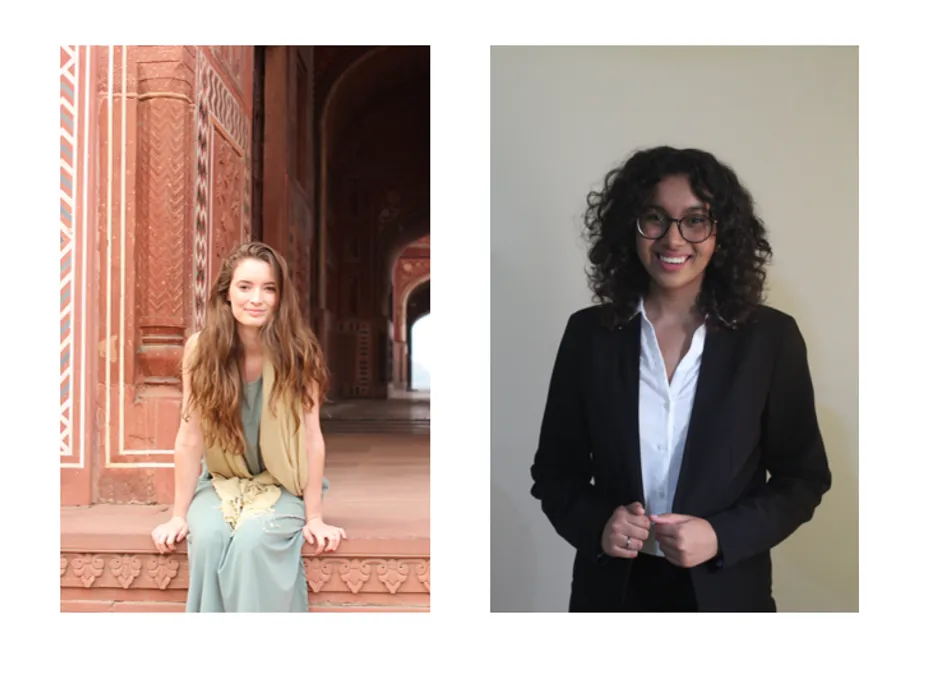Our online taught EMFSS programmes empower learners around the world to pursue their educational goals and careers, without having to relocate. We sat down with two students, one located in Canada and another in Mumbai, to gain insight into their experience on the online EMFSS programme.
What Are the EMFSS Programmes?
The Online Undergraduate Programmes in Economics, Management, Finance and the Social Sciences (EMFSS) are awarded by the University of London, with academic direction from London School of Economics and Political Science (LSE). Building on the University of London’s rich history of providing accessible education around the globe, LSE’s expert faculty have developed world-class academic content that is available online, on your schedule.
Each of these degrees has been designed with flexibility in mind:
- BSc Accounting and Finance
- BSc Business and Management
- BSc Data Science and Business Analytics
- BSc Economics
- BSc Economics and Finance
- BSc Economics and Management
- BSc Finance
- BSc International Relations
- BSc Mathematics and Economics
With four annual programme starts (August, November, February, May) and the ability to attend full- or part-time, learners around the world can access quality education in a format that complements their personal and professional goals, lifestyle, and location.

The Online Student Experience
To provide a student’s perspective of the online undergraduate programmes, we asked Ayla Slanina (BSc in Business and Management) and Enakshi Fernandes (BSc in Economics) to share their experiences.
Ayla, who lives in British Columbia, Canada, is an avid reader who is working for a young entrepreneurial couple at their local firm as she completes her degree. In Mumbai, India, Enakshi is studying two undergraduate programmes, and fills her free time with creative passions, such as painting and astrophotography.

How Students Create Study-Life Balance
For Ayla, who works full-time as an assistant manager for the owners of three local businesses (two markets and a juice company), most of her studies fall on her days off and in the evenings. She is also creative about carving out time, when necessary, within her busy work schedule, so she can find time to engage with her classmates who reside across time zones.
To succeed, Ayla believes that “the most important thing is consistency because you're creating your own working environment. Even if it’s 15 minutes, even if you don't complete a task or finish an article [in one go], just look at something every single day and be consistent with that.”
Meanwhile, Enakshi is undertaking her online programme in conjunction with a second, on-campus undergraduate programme where she lives in Mumbai. This means balancing two study schedules. She dedicates her daytime hours to her on-campus programme, reserving her evenings to participate in live sessions and studies for the BSc in Economics.
“The online undergraduate degree is very flexible and provides a lot of independence to your experiences,” Enakshi says, “whether it's with your module selection or how you choose to approach a programme with your studies. It also means that it takes a lot of responsibility, and the onus is on you, that you need to be responsible for your student experience.”
In deciding how to balance her work-life schedule, Enakshi says that she “draws a lot of inspiration from my colleagues and peers on the programme who are also working full time and managing other commitments while pursuing the online degree. It definitely helps me also understand how I want to balance my things out.”
The Benefits of a Flexible, Online Model
"I’m able to live in a town of 8,000 people and still get an internationally recognized degree, all while working."
When it comes to the online learning experience, Ayla praises the flexibility and freedom of this learning model. “It's given me [the ability] to really be in charge of my education,” she says. “I own what I do. There's nobody telling me I have to be somewhere at a certain time.” She is also able to still enjoy the other aspects of her life, though. “I can have it all if I want,” she says. “I can work and study and do other things in my life.”
The online model factored in heavily into Ayla’s decision to apply for the BSc in Business and Management from the University of London and LSE, not just because of its flexibility, but because of where she lives: “Particularly where I live in Canada, to go to university you have to move to a bigger city. Most rural communities in Canada don’t have access to that. I’m able to live in a town of 8,000 people and still get an internationally recognized degree, all while working.”

Develop Broader Perspectives
Online programmes with University of London and LSE also offer an opportunity to gain an enhanced global perspective. The ability to interact with people from different countries, backgrounds, and levels of experience — be it peers, alumni, or expert faculty — has enhanced Enakshi’s learning. “It adds to who I am,” she explains. “It adds to my perspectives and it shapes my opinions and adds a global context to them. So that's definitely one of the greatest advantages of studying online.”
How You’ll Learn Through the Digital Campus
"I have been opened up to the wider network of views, opinions and ideas, being a part of a geopolitically diverse community and classroom."
Students of the online EMFSS programmes have access to our easy-to-use digital campus. The digital campus is available on desktop and mobile devices, and features built-in study tools, flexible learning formats such as video streaming, and readily available course content.
For Ayla, in Canada, the ease of access offered by the digital campus makes completing coursework much easier. “They have all of our modules between the course content laid out in basically a checklist,” she says. “So, it's very easy to go through and see what you need to do or what you haven't caught up on. It's really well laid out. I also like the app feature, as I'm able to download my content offline.”
Designed by technology and education experts, our digital campus is not just intended as a means of accessing course modules and content; it is also an engagement tool meant to enhance the connection between students.
Before beginning her online programme, Enakshi, in Mumbai, believed she would feel isolated from her peers. “But,” she says, “the modules having online discussion rooms, student groups, and activities have definitely proven me otherwise. I have been opened up to the wider network of views, opinions and ideas, being a part of a geopolitically diverse community and classroom.”

Students Receive Personalised Support
"Above all, my Student Success Advisor has been someone who has always checked in on my wellbeing – emotional, mental, academic, or personal. And that's something that I really appreciate about the student support."
Support begins the moment you request information about one of the online taught EMFSS programmes, with a dedicated admissions counselor to guide you through the application process. Applicants who are admitted and enrol into one of our programmes are then matched with a Student Success Advisor who will track academic progress and help learners meet their goals.
Support is based on the student and their needs. Ayla, for example, checks in with her Student Success Advisor usually once a month, whereas Enakshi and her advisor share bi-weekly calls or emails. Though the cadence and needs may differ, both students have found the help they received from their Advisors exceeds beyond academic support.
“[My advisor is] really great at keeping up with what's going on more personally for me,” says Ayla, “and making sure that I'm remembering to exercise or socializing or doing regular human things. She shared a few bigger moments with me; I ran a marathon last year and she was super supportive.”
Enakshi concurs: “Above all,” she says, “my Student Success Advisor has been someone who has always checked in on my wellbeing – emotional, mental, academic, or personal. And that's something that I really appreciate about the student support. [My Advisor] is someone who's always prioritized and continually worked on improving my student experience and has also been there to celebrate my every win.”
Making Peer-to-Peer Connections
Connection began almost immediately for Ayla, who joined from Canada. “When I started the programme, all of us [in my cohort] were excited,” she explains. “Of course, everybody’s posting on the platform and trying to make study groups. A lot of us ended up making a WhatsApp group chat, which started off with maybe a hundred of us all talking – which is a lot. A few of us then actually met up on Zoom and had face-to-face conversations [outside class time].”
For Enakshi, in Mumbai, her connection began through the live sessions and breakout opportunities in which she and others in the course could share experiences and ideas, virtually face-to-face. Although students in the cohort were establishing relationships virtually, these interactive sessions, she says, “helped us to get more comfortable.”

A Global Alumni Community
"Being a part of the University of London also means that you get to continually learn."
Those who enrol in and graduate from these programmes join a global network of University of London students and alumni. Enakshi, who is still completing her programme, describes the benefits of this network as a current student and what she hopes to contribute herself as an alum:
“Even now,” she says, “as a student, I'm connected with a lot of alumni of the University of London.
“The response has been so supportive. So overwhelming. I've been connected to [alumni] through LinkedIn. And I look forward to doing that for the student community as well, being there for support, for advice, attending networking events.
“I also connect with students who are from different countries. I believe that the University of London has networking events on campus as well, so I look forward to attending those. Being a part of the University of London also means that you get to continually learn. You can get to continually draw inspiration and you also get to contribute. So that's something I'm definitely looking forward to.”
What do Ayla and Enakshi Enjoy Most About Learning from LSE?
“The academic direction through LSE,” Enakshi says, “enables me to access and draw knowledge from some of the best resources. The programme is awarded by an amazing institution [University of London] and has opened doors to world-class and practical education with distance learning mechanisms. And it enables a lot of students to benefit from this programme at great financial value. All of these reasons combine something that has drawn me to this programme and its open international education.”
To Enakshi, the global perspective is also a continued theme in her choice to pursue her BSc in Economics through LSE. When asked what she so far most enjoyed about being a part of the wider LSE and University of London community, she says, “We are part of a global classroom, but you have international students starting from different locations, so it always makes learning more interesting.”
She also notes that she responds well to the course structure, which “takes a multi-dimensional approach involving varied forms of learning, like reading material from textbooks, using case studies to apply knowledge to real world scenarios and also pre-recorded videos. So, it puts into context everything that we are studying through different forms.”
Ayla, on the other hand, emphasises the importance of receiving a quality education. “Access,” she says, “is most important. Even simple things like LSE Fest and getting access to speakers who have won Nobel Peace Prizes.”
Learn More About the EMFSS Programmes
Applications and enrolments are open, with four annual programme starts (August, November, February, May). Read more to discover which online taught EMFSS programme is right for you.